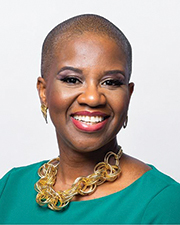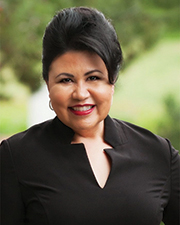

Many CEOs are still struggling and resisting the diversity, equity, and inclusion (DEI) conversation that their employees, clients, and even the community are requesting. Why? Here are five reasons, based on observations and candid conversations with C-suite leaders.
Lack of awareness
It is no secret that an overwhelming number of C-suite leaders lack deep awareness of issues affecting the Black, Indigenous, People of Color (BIPOC) community. Many CEOs grew up in homogeneous neighborhoods and attended colleges or universities where instruction and leadership were carried out by people who looked like them. This trend continued into their careers. Leaders may have had brief interactions with members of the BIPOC community but not truly meaningful relationships.
Although many leaders acknowledge that racism exists, they struggle to internalize the deep roots of structural racism and its detrimental impact on their organizations and employees. Leaders have before them an unprecedented opportunity to change the cultures of their organizations for the better, but first, they must be willing to listen and commit to becoming aware of how systemic racism is affecting their workplaces.
Not realizing that the culture they built has caused harm
As consultants, delivering DEI climate assessment results is one of the most difficult parts of our job. CEOs tend to focus on what the organization is doing well for their employees. However, CEOs resist the idea that the organization they have built with pride, could be inadvertently nurturing an environment. BIPOC employees may be experiencing varying degrees of discrimination, microaggressions, or practices and policies that perpetuate racism or roadblocks to advancement.
Learning from the data objectively takes courage and the willingness to put away defensiveness. CEOs who ultimately emerge with renewed awareness and the boldness to create a culture where every employee can thrive ultimately acknowledge the issues because they choose to approach listening and learning with curiosity and courage.
The instinct to be the expert in the room and the discomfort of leading from behind
Becoming more aware is a step in the right direction, and it comes with listening and gaining more knowledge. Newly awakened CEOs or executive leaders can be the greatest asset to progress, but they can be stumbling blocks if they let their newfound knowledge hijack the conversation after a few lessons about DEI. CEOs need to be the champions of this journey. However, this is a time to lead from the background and to champion those who have more experience.
Fear of the conversation
The events of last year have opened the doors to conversations about racism that have never taken place in the workplace before. C-suite leaders are now forced to lead while lacking a basic understanding of the topic and the consequences of saying the wrong thing can have irreparable consequences and serious career implications.
Knowing this, CEOs have shared that they avoid the topic or engage in surface discussions to avoid making a mistake. Please know this — it is possible to have uncomfortable conversations that are productive within the right environment where curiosity, humility, and compassion are allowed to exist. How? Admit ignorance, become aware, and partner with experts that can help your organization on this journey.
No current impact on the bottom line
Organizations today are still able to conduct business in homogeneous environments that lack DEI without an impact on their profits. For that reason, CEOs do not see the need to address racism now. Leaders are discovering that culture change is not just about addressing racism but actively creating healthy organizational cultures where every employee feels valued and has access to opportunities.
There is a business case for DEI. Leaders who choose to respond with creative and innovative ideas at a time when industry disruption is the norm not only will attract new clients and talented employees, but their organization will also lead the way of a more DEI organizational future that is already knocking at our doors.
Karen Hinds will be leading a workshop for the Construction Institute as a part of the annual AEC Leadership Conference, November 10th. Learn more at construction.org
Karen Hinds is CEO and Maria Keckler is an executive consultant at Workplace Success Group, West Palm Beach, FL.








